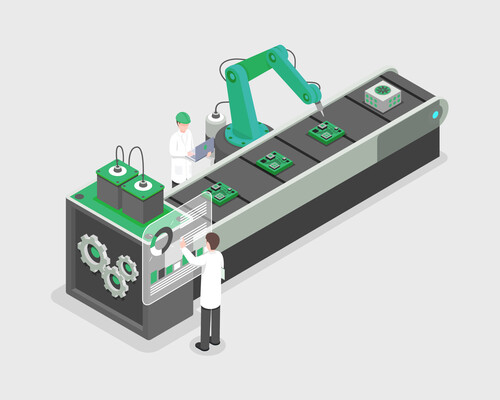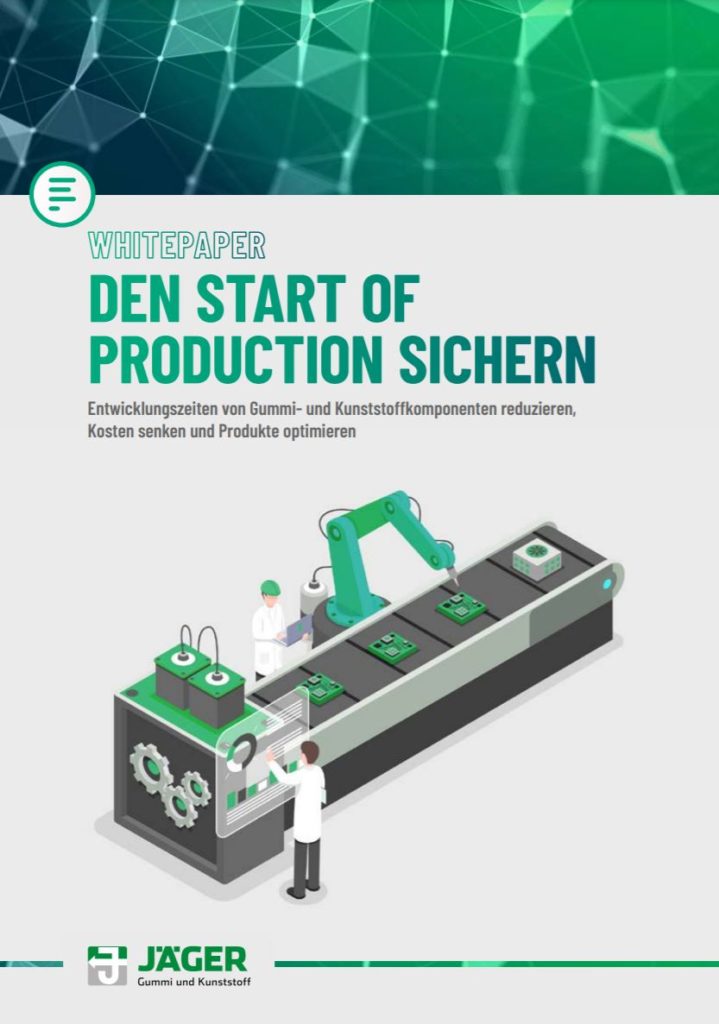
JÄGER Business Blog


WHITEPAPER
Find out which factors influence your SOP!
Individual orders are a popular purchasing strategy for production companies that want to be flexible in their materials procurement. This approach promises favorable purchasing prices, as organizations can always choose the most favorable supplier when needed. However, it also involves risks, because in times of crisis, occasional customers often lose out. It can therefore make sense for production companies to secure their material requirements through long-term framework contracts instead.
In line with the just-in-time philosophy, many companies are always keen to keep their inventories low. Instead, they rely on precisely planned deliveries of goods. As a result, their supply chain management is particularly vulnerable to disruptions. The COVID 19 pandemic has highlighted this.
In response to the increased number of cases, governments around the world imposed contact restrictions, causing companies to reduce their production output. The same applied to all players in the global value chain, right down to raw material suppliers, who reduced their production volumes. As Corona declined, an economic upswing began and demand for raw materials increased faster than suppliers could meet it. The result was supply shortages due to pre-material bottlenecks and rising prices.
For companies that had concluded long-term framework contracts, this was a manageable task, as their suppliers were able to adjust to the situation. Companies that relied on individual orders were in a worse position. They could not refer to existing contracts when negotiating supply conditions. In addition, most suppliers try to supply their long-standing existing customers first when there is a shortage of materials. Casual customers often lose out in a crisis situation.
Framework contracts regulate the long-term cooperation between customer and supplier. One of their advantages is a high degree of planning security. The supplier knows exactly which orders he will have to meet in the coming months and can prepare for them by producing the material in advance and keeping it in stock. The customer, in turn, can be sure that his delivery will arrive on time. This is particularly relevant for companies that purchase individually manufactured rubber or plastic articles, because no supplier has such products in stock as standard. In such cases, individual orders often lead to delivery delays.
Another advantage of framework contracts is the low negotiation and organization effort compared to individual orders. The customer’s purchasing department only has to negotiate conditions once, not for each order transaction. This significantly reduces process costs.
In addition, framework contracts have financial advantages. If a customer orders large quantities of a product at once, the supplier can achieve scaling effects in production and pass them on in terms of price. For example, the setup costs of the machines involved are reduced because the entire order can be handled in one piece. The same applies to administrative costs. In addition, there is greater price stability for the goods ordered, as the purchase price was fixed when the framework contract was concluded. Furthermore these conditions are not subject to fluctuations (apart from contractually agreed exceptions).

Framework contracts are worthwhile
Apart from the explicit advantages of a framework contract, long-term cooperation with rubber and plastics suppliers has some positive effects, which are especially noticeable on a social level.
For example, the consultation between customer and supplier is faster and easier if there is already a long-standing relationship of trust. If the people responsible on both sides know each other personally, they can sort out problems and conflicts more easily, often bypassing the official channels. An informal telephone conversation between long-standing business partners, for example, can resolve delivery delays much more quickly than an e‑mail to the supplier’s service department.
Another issue is smooth cooperation between organizations that know each other well. Conflicts often arise because both sides have different goals or expectations that contradict each other. However, if a business relationship has existed for some time, it is likely that the customer and supplier have realized that they are both on the same side and need to approach each other. Companies that have been working together for a long time know how the other partner works. They can anticipate potential points of conflict, know the strengths and weaknesses of their business partners and how their contacts react in different situations. As a result, there are significantly fewer frictional losses.
Long-term collaboration with suppliers also pays off from a financial perspective. For example, suppliers often offer better prices to long-standing customers because they have an interest in continuing the partnership and take less risk. A customer who has been paying his invoices on time for years will probably continue to do so. In addition, it is usually more profitable for manufacturing companies to retain existing suppliers. Researching, contacting and negotiating contracts with new suppliers is always time-consuming and only pays off after a while. Once you have found a trustworthy supplier, you are usually better off making the cooperation long-term.
Concluding a long-term cooperation with suppliers on the basis of framework contracts has several advantages. The customer benefits from increased planning security, reduced administrative effort in purchasing, and financial advantages resulting from scaling effects. In addition, a trusting partnership often brings efficiency gains in the interaction between customer and supplier. This is another reason why it pays to secure your own goods requirements with framework contracts.

Whitepaper: Secure the Start of Production
Learn which factors influence your SOP!

Jörg Zitzelsberger has been part of the Jäger Gummi und Kunststoff team since 1993. With many years of experience, he serves our customers as head of the Stuttgart location.
Share this post!

Thomas van der Wardt

Petra Dirlenbach